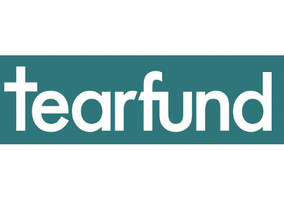The Alzheimer’s Society's spending on staff redundancies doubled in the 12 months to March 2020, according to the charity's latest accounts.
The accounts, published with Companies House last week, also show that the charity achieved a small surplus last year, after five successive years of spending more money than it raised.
Kate Lee, chief executive, acknowledged that Alzheimer’s Society had “faced challenges” after reports in The Guardian newspaper earlier this year that the charity had spent thousands of pounds in settlement agreements.
The Charity Commission cleared the organisation of wrongdoing.
Redundancies
The accounts show that money spent on staff redundancies more than doubled, from £228,000 in 2018-19 to £467,000 in 2019-20.
Robert Butler, chief financial officer at the Alzheimer's Society, said that a restructure last year had led to some redundancies, with more jobs going because of the pandemic's impact on the charity's finances.
Butler said: “Before coronavirus, we were making changes to our structure in our large services area to ensure that we could accelerate rollout of our exciting new Dementia Connect service, which aims to provide what people with dementia have told us they most need.
“Sadly, this year we’ve had to make further redundancies in response to our financial loss, and also to mitigate the risks we expect to face in the future, seeking to increase our efficiency while also cutting costs.
“While we do everything we can to avoid redundancies, unfortunately we have had to lose some fantastic people as a result of these changes.”
He added that the pandemic has had "a very significant impact on our fundraising this year", with the charity facing projected losses of £25m.
In the black
The Alzheimer’s Society’s total income was £113.8m in 2019-20, around £1.5m more than in 2018-19.
The charity spent £113.2m. This surplus of around £600,000 compares with a loss of £5.5m last year.
Its fundraising income rose by just over 1%, from £80.7m to £82.8m.
Staff settlement policies
In February this year, some former staff at Alzheimer’s Society claimed that the charity had been too slow to act on concerns about bullying, and had used non-disclosure agreements to try and “silence” employees leaving the organisation.
The Charity Commission subsequently found that the charity’s trustees had acted in line with their legal duties.
In May, Alzheimer’s Society promised to be more transparent about its policy on using staff settlements and pledged to “talk further about how we use settlements in the annual report 2019-20, which, we hope, will continue to demonstrate our absolute commitment to accountability and transparency”.
The accounts include little detailed discussion of this work, although in her introduction to the report Kate Lee writes that “we have still been busy reviewing relevant policies and working to ensure Alzheimer’s Society is a great place to work and volunteer. You have high expectations of us, rightly so”.
Lee says that the settlement figures named in the original reports are incorrect, but does not provide any other figure.
A spokesperson for Alzheimer's Society told Civil Society News that the charity had instigated an independent review of its procedures after the Guardian story and that, although details were not published in the annual report, the review has led to "minor revisions" to some internal policies.
This includes formalising the process for agreeing any future settlement payments to ensure the involvement of senior staff and the chief executive, and changing the name of its grievance procedure.
They also said that Alzheimer's Society planned to publish a fuller account of its work on settlements policy in the charity's next annual report.
Research and reserves
The accounts show that the charity spent £5.8m on medical research towards a target of £12m, before plans were disrupted by the coronavirus pandemic.
They also show that Alzheimer’s Society decided to spend more than £1m of its free reserves last year. Total reserves stand at £17.7m, which represents around four-to-six months of charitable expenditure. This is well within the charity’s reserves policy.
Stephen Hill, the chair of trustees, writes in the report: "We are determined to build on the progress made during the last year, when we managed to reach more people living with dementia than ever before.
"We will continue to roll out our Dementia Connect service and develop our efforts in research.
"The impact of Covid-19 may slow us down, but it will not stop us."
Related articles












